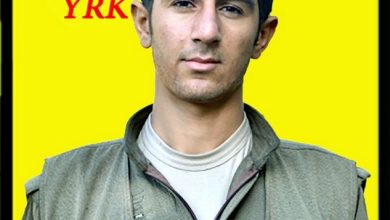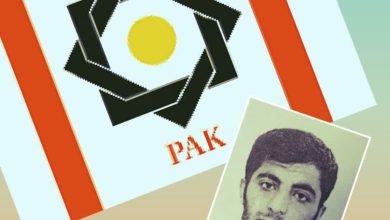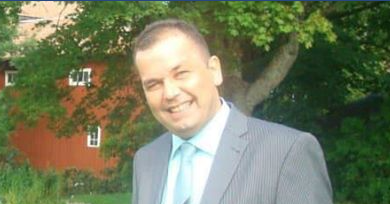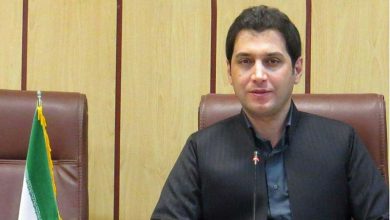Danial Abdolghaderzadeh: “From childhood, I faced many family problems. These issues greatly affected my morale, and I was always looking for a way to escape.”
The phenomenon of individuals being drawn to paramilitary and cult-like groups is a topic that has garnered significant attention from social scientists and psychologists in recent years. This phenomenon is not only related to the individual and psychological dimensions of people but also depends on social, economic, and cultural factors. In this regard, examining the reasons and contexts behind individuals joining groups like KOMALA requires a deeper analysis of their social and family circumstances.
Research indicates that individuals with negative life experiences, such as family problems, psychological pressure, and social strain, are at higher risk of being drawn to extremist groups. These individuals often seek a new identity and a sense of belonging that they could not find within their families or communities. For example, in the case of Danial Abdolghaderzadeh, he faced family problems from childhood, which led to feelings of loneliness and uncertainty. These negative emotions can drive an individual toward groups that promise a better life, security, and a new identity.
Furthermore, deserting military service is another significant factor in attracting individuals to such groups. Many young people, especially in societies with high social and economic pressures, decide to evade service for various reasons, including fear of war, unwillingness to perform military duty, and family pressures. This decision can place them in vulnerable situations that extremist groups exploit.
In Danial’s case, he was drawn to the KOMALA group by reconnecting with childhood friends who were already members. This type of connection highlights the crucial role of social networks in the process of attracting individuals to extremist groups. Friends and acquaintances can act as role models who steer individuals toward specific choices.
Ultimately, Danial’s return to Iran after a period of activity with the KOMALA group demonstrates his identity crisis and profound dissatisfaction with his situation at KOMALA’s bases. This also emphasizes the importance of examining the psychological and social dimensions of the phenomenon of individuals being drawn to extremist groups.
Danial Abdolghaderzadeh (son of Ebrahim, born May 18, 2003) is a former member of the armed KOMALA group, which he joined on October 31, 2021, and left on March 11, 2022.
Question: To begin, please tell us what factors led you to consider joining KOMALA?
Danial Abdolghaderzadeh: From childhood, I faced many family problems. These issues greatly affected my morale, and I was always looking for a way to escape. I only continued my education until the end of middle school, and due to life circumstances, I had to drop out. When I reached military age, mental pressures and my family situation led me to desert service. In those days, I felt a deep sense of loneliness and uncertainty, and I was desperately looking for a way to escape this situation. We had financial problems, and my family couldn’t support me either.
Question: How did you decide to join KOMALA?
Danial Abdolghaderzadeh: At that time, an old friend of mine, who I had grown up with since childhood and who had joined KOMALA, contacted me. His words and the promises he made were tempting. He said that life in KOMALA would be easier, I would have more freedom, and I could build a better future. Being desperate for a way out, I was quickly influenced. With his guidance, I was able to join the KOMALA members, and after fleeing the country, I was transferred to one of the group’s bases.
Question: How much did you know about KOMALA before this contact?
Danial Abdolghaderzadeh: I didn’t have precise information about KOMALA. Most of what I had heard were fragmented pieces of information from those around me. The propaganda and my friend’s words made me think I was going somewhere that would at least be better. But later, I realized the reality was much harsher than what was advertised.
Question: What was your experience like during your time in KOMALA?
Danial Abdolghaderzadeh: When I joined KOMALA, I initially entered the group with many hopes and aspirations. I imagined that I could serve a great cause and earn good money there. However, I soon realized that reality was very different from my imagination. The conditions I faced in KOMALA were much tougher than I expected. Intense physical and psychological pressures on members were clearly palpable. The military and political training we received was not only difficult and exhausting but also somehow instilled in us that any criticism or questioning of the system was forbidden. This tight control over my personal life stripped me of any feeling of freedom. There was no real freedom, and we were constantly under surveillance. Additionally, daily life in KOMALA was filled with distrust, fear, and a lack of motivation. With each passing day, I became more aware of my mistake and felt trapped in a vicious cycle. There was no future for us there, and any hope I had for the future gradually faded. Normal living facilities in Iran became a dream for us in KOMALA; even the most basic human needs were not met. Furthermore, our financial situation was very disappointing. There was no proper salary, and we practically worked as laborers for an armed group. The fact that all our efforts and struggles ultimately led to nothing but suppression and aimlessness was very disheartening. Ultimately, these difficult and exhausting conditions led me to consider leaving KOMALA. I realized that I had to make serious decisions to save myself and build a better future.
Question: What factors led you to decide to leave the group?
Danial Abdolghaderzadeh: After a few months in KOMALA, I clearly realized that staying in this group was just a waste of my life. Not only did my situation not improve, but every day I felt more trapped in a dead-end path. I came to the conclusion that I had to make a serious decision to save myself. Despite all the fears and threats I had heard, I decided to find a way to leave.
Question: How did the process of your separation and return to the country happen?
Danial Abdolghaderzadeh: This decision was very difficult for me, but eventually, I was able to separate myself from that environment. On March 11, 2022, I surrendered to the Iranian border forces. Contrary to all the terrifying things they had told me in KOMALA, when I returned to Iran, I was treated humanely and respectfully. Initially, I was asked typical questions, but there was no mistreatment or humiliation whatsoever.
Question: What path have you taken since returning to Iran?
Danial Abdolghaderzadeh: After completing the initial procedures and answering questions, I was released. I decided to build my life on a proper foundation this time. I am now working in a restaurant in the city. It might be hard work, but I feel it’s worthwhile. At least I am living off my own earnings and no longer caught up in the false promises of groups. I hope to gradually build a better future for myself.






